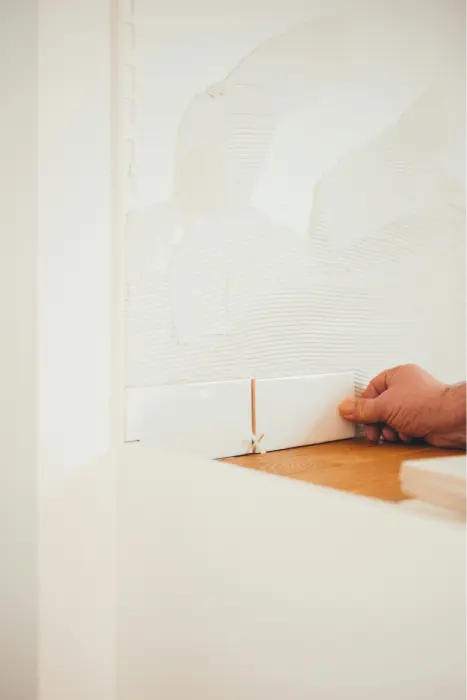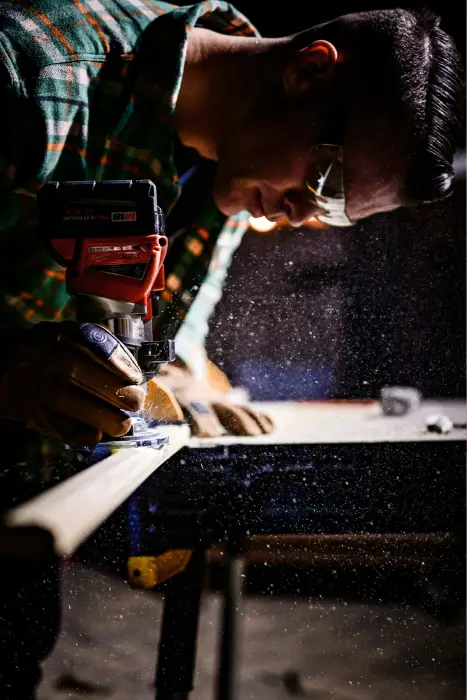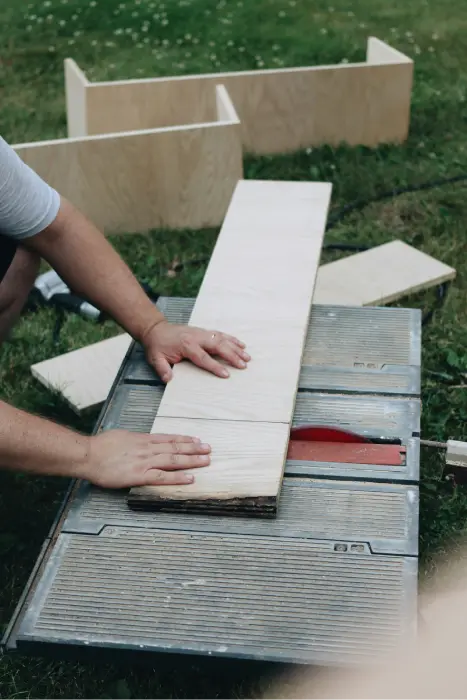Materials Testing & Selection.
Discover expert materials testing and selection services in Crete, tailored to ensure durability, sustainability, and compliance with local building standards. Our team uses advanced techniques to evaluate construction materials, supporting projects with accurate, cost-effective solutions for resilient and eco-friendly builds.
Expert Selection and Testing Services for Sustainable Construction
When it comes to ensuring the durability, quality, and sustainability of construction projects, material testing in Crete plays a critical role. At ARENCOS, we provide comprehensive material testing services to assess the properties and performance of construction materials, ensuring they meet local building codes, sustainability criteria, and the highest safety standards.
Our experts not only perform rigorous material tests but also guide you in selecting the most suitable materials for your construction project in Crete.
Why is Material Testing Important?
Material testing is essential in modern construction, particularly in Crete, where the unique climatic conditions demand durable, resilient, and sustainable materials.
Whether you’re developing residential or commercial buildings, roads, or public infrastructure, testing the materials for strength, durability, thermal insulation, and environmental impact is paramount.
Key Benefits of Material Testing in Crete:
- Compliance with Greek building regulations – Ensure that all materials comply with national safety and environmental standards.
- Optimize construction costs – Avoid costly replacements by verifying the quality of materials in advance.
- Enhance sustainability – Select eco-friendly materials that contribute to the longevity and energy efficiency of your project.
- Prevent structural failures – Ensure that every component withstands the rigours of Crete’s unique climate, from hot summers to seismic activity.
Dedicated to Long-Term Sustainability of your Project.
1. Concrete Testing
Concrete remains one of the most widely used building materials in Crete. We offer:
- Compressive Strength Tests – Ensuring the concrete meets design specifications for load-bearing.
- Durability Testing – Assessing resistance to weather conditions, including saltwater exposure and extreme heat.
- Permeability Tests – Ensuring water resistance, critical for coastal and underground structures.
2. Soil and Aggregate Testing
Foundations rely on solid ground. Our soil and aggregate testing services include:
- Soil Composition Analysis – Understanding the foundation requirements based on the unique soil profile of the area.
- Compaction Tests – Verifying the strength and stability of compacted materials.
- Grain Size Distribution – Ensuring proper material sizing for road construction and other load-bearing projects.
3. Steel and Reinforcement Testing
For structural integrity, it’s vital to evaluate:
- Tensile Strength – Determining the steel’s resistance to stretching.
- Yield Strength – Ensuring steel can withstand seismic activity, common in Crete.
- Corrosion Resistance – Testing metal materials for resistance to rust and corrosion, especially near coastal areas.
4. Thermal and Acoustic Material Testing
Sustainability is crucial in today’s construction. We test:
- Thermal Conductivity – Assessing insulation materials for energy efficiency.
- Soundproofing Materials – Ensuring acoustic insulation meets residential and commercial building standards.
5. Advanced Material Testing for Sustainable Construction
As sustainability is a growing priority, we test eco-friendly and regenerative materials:
- Natural Stone – Locally sourced stone for facades and structural elements, tested for strength and weather resistance.
- Recycled Materials – Testing the viability of recycled construction materials for structural use.
Innovative ideas, independent minds, deep technical knowledge. Find out what makes ARENCOS different.
The Material Testing Process: From Sample Collection to Analysis
| Step | Description |
|---|---|
| 1. Sample Collection | We collect material samples from the site, ensuring they represent the material batch in use. |
| 2. Lab Testing | Samples undergo testing for mechanical, chemical, and physical properties in state-of-the-art labs. |
| 3. Data Analysis | Our engineers analyze the data to assess the material’s performance and compliance with local standards. |
| 4. Reporting | We provide a detailed report outlining the material’s properties, performance, and recommendations. |
| 5. Consultation | We offer a follow-up consultation to help you understand the results and make informed decisions. |
Understanding the Results: What the Data Tells You
- Predict durability and maintenance costs over time.
- Identify risks and vulnerabilities in material choices before construction begins.
- Optimize material usage by selecting the highest-performing materials in terms of cost, sustainability, and strength.
| Test Parameter | Significance |
|---|---|
| Compressive Strength | Determines the material’s load-bearing capacity and suitability for structural elements. |
| Thermal Conductivity | Key for selecting insulation materials that reduce energy consumption. |
| Corrosion Resistance | Important for steel structures in coastal areas prone to rusting. |
| Acoustic Insulation Value | Determines the effectiveness of soundproofing materials, particularly for commercial or urban developments. |
Case Study: Sustainable Material Testing for a Passive House in Crete.
| Material | Testing Focus | Outcome |
|---|---|---|
| Natural Stone | Compressive Strength, Thermal Conductivity | Exceeded strength requirements, excellent thermal performance |
| Recycled Wood | Fire Resistance, Durability | Passed all fire safety tests, durable for structural use |
| Eco-friendly Insulation | Thermal Conductivity, Soundproofing | Met all energy efficiency and acoustic standards |
Biophilic design is a concept used within the building industry to increase occupant connectivity to the natural environment through the use of direct nature, indirect nature, and space and place conditions.
Frequently Asked Questions about Material Testing.
1. What materials should I prioritize for construction in Crete?
When constructing in Crete, selecting materials that can withstand the local climate is crucial. Given the high temperatures, coastal exposure, and seismic activity on the island, the following materials are highly recommended:
Natural Stone: This material is not only abundant in Crete but also durable, offering excellent resistance to harsh weather conditions. It provides natural insulation and fits well into sustainable and regenerative designs, making it ideal for eco-conscious projects.
Concrete: Reinforced concrete is key for structures that need to withstand earthquakes, which are a consideration in Crete. Additionally, when paired with eco-friendly practices like using recycled aggregate, concrete can meet both performance and sustainability goals. Learn more about Eco-Friendly Practices Shaping Multi-Family Projects here.
Eco-friendly Insulation: In alignment with Crete’s push towards energy-efficient and sustainable construction, insulation materials like sheep wool, cork, and cellulose are increasingly favored. These materials provide superior thermal properties, helping reduce the overall energy consumption of the building, especially in multi-family or large-scale residential projects.
By choosing sustainable, locally sourced materials, you can also align your project with the principles of Regenerative Design, an approach that seeks to enhance both the environmental and social value of your construction. Explore the 6 Key Principles of Regenerative Design here.
2. How often should material testing be conducted?
Material testing should occur at several critical points during a project’s lifecycle:
Initial Phase: Before any construction begins, material testing helps verify the quality of materials sourced. This is essential to ensure that the foundation and structure are built with durable, compliant materials.
Mid-Project: It’s wise to test materials during key stages of construction, especially if using innovative or sustainable materials, to ensure performance meets expectations.
End of Project: Final testing verifies that all materials used in the project comply with the required standards, ensuring that the building meets durability, safety, and energy efficiency requirements.
Regular material testing helps avoid costly repairs and enhances the sustainability of the building. If you’re integrating Regenerative Design principles, ongoing testing can also help monitor the material’s performance over time.
3. What’s the average cost of material testing in Crete?
The cost of material testing in Crete depends on various factors, including:
- The types of materials being tested (e.g., concrete, natural stone, insulation).
- The number of tests required (e.g., compressive strength, thermal insulation properties, corrosion resistance).
- Project size and scope.
We are a dedicated collective committed to sustainable design and development. By integrating the latest technologies, critical thinking, and knowledge sharing with creativity and imagination, we are shaping the buildings of tomorrow.
passive house and
nearly zero energy buildings nZEB.
client satisfaction
in project consruction delivery.
Got a project?
Whether you’re considering a new construction, renovation, or development initiative, our team is here to help. We offer expert guidance on planning, design, and execution to ensure your project meets your vision and adheres to local regulations.















